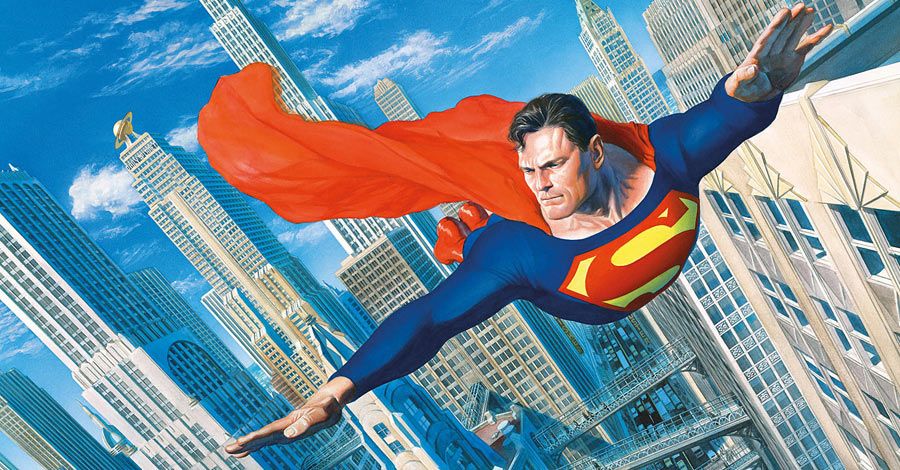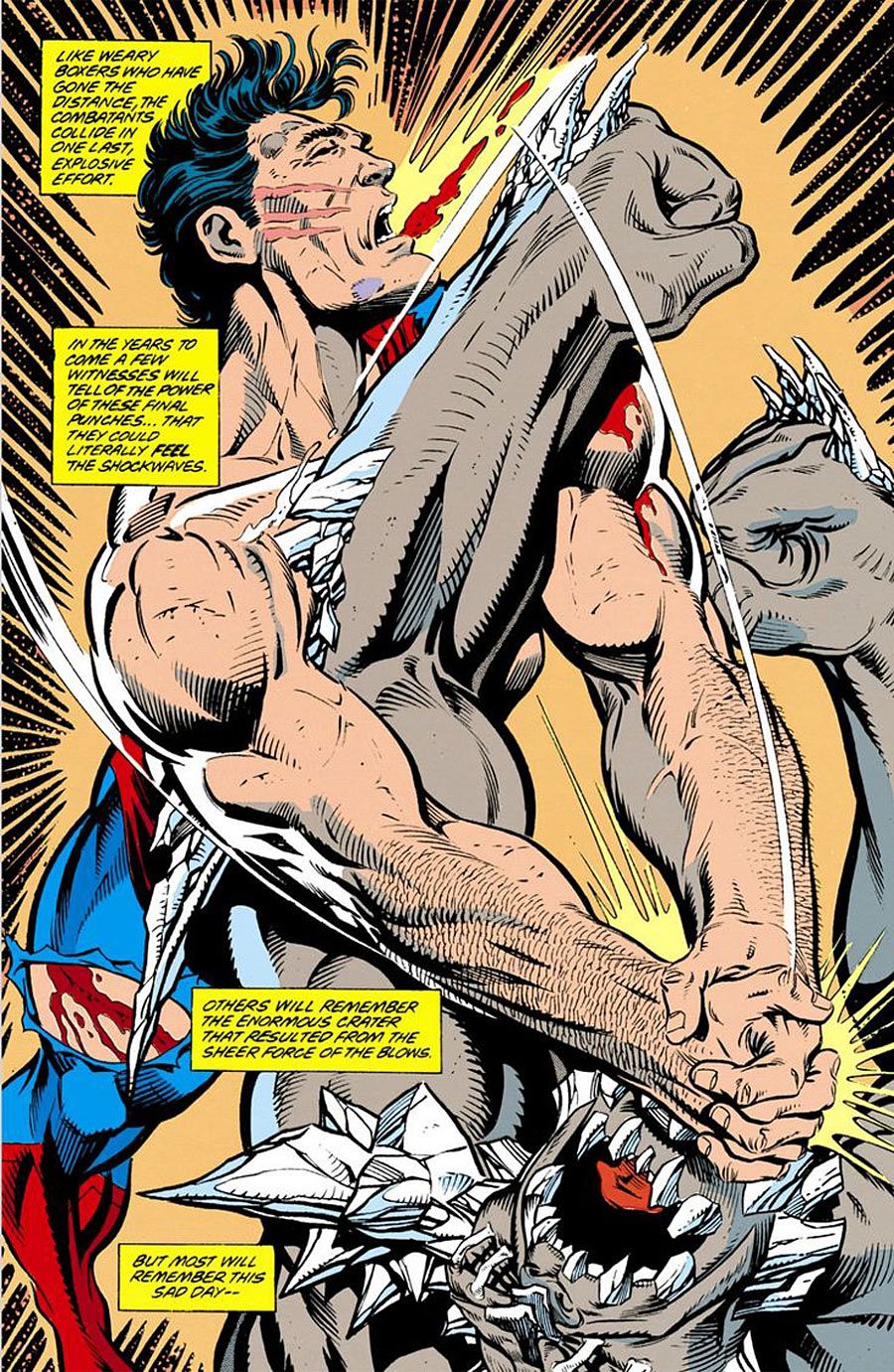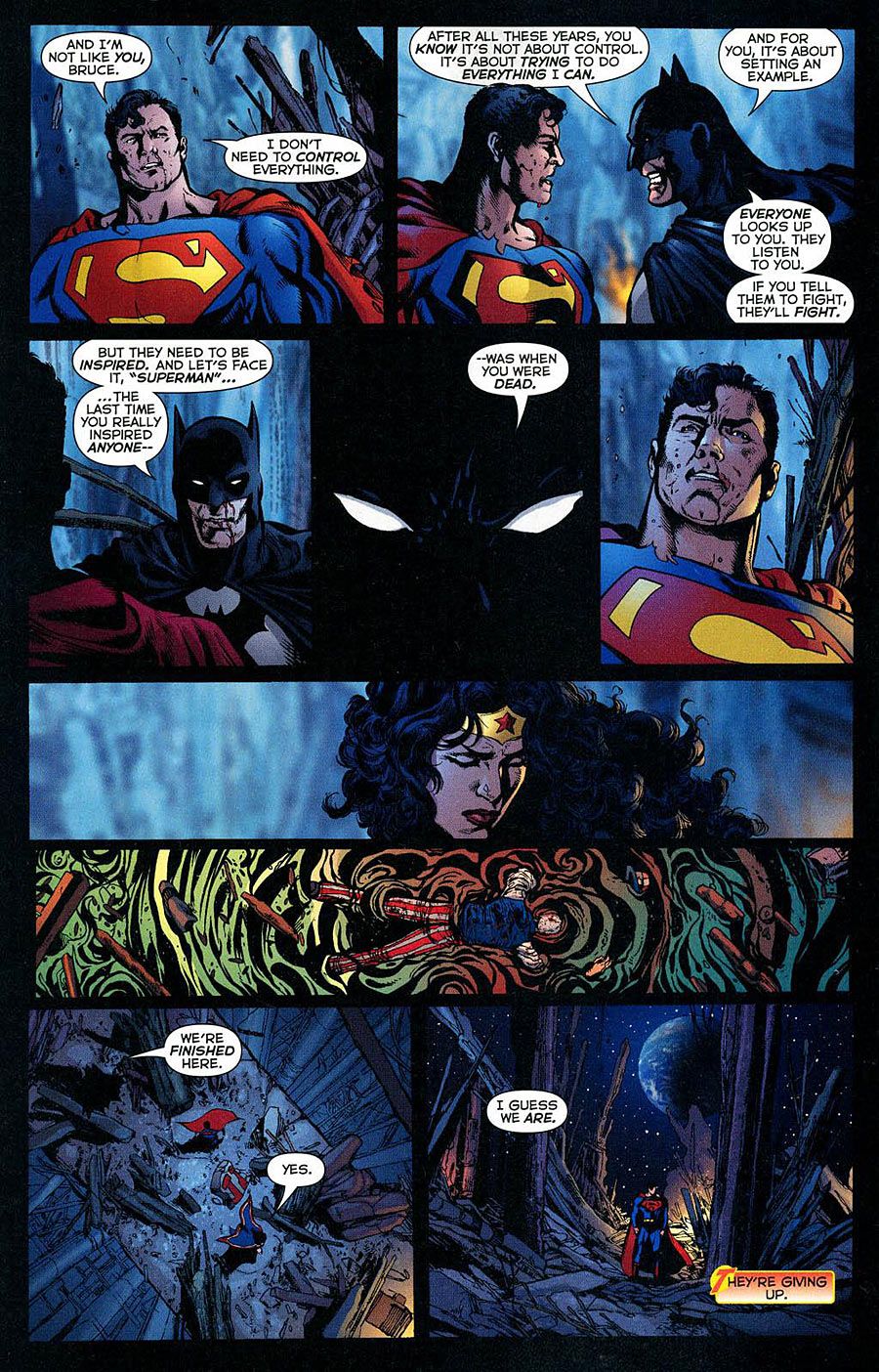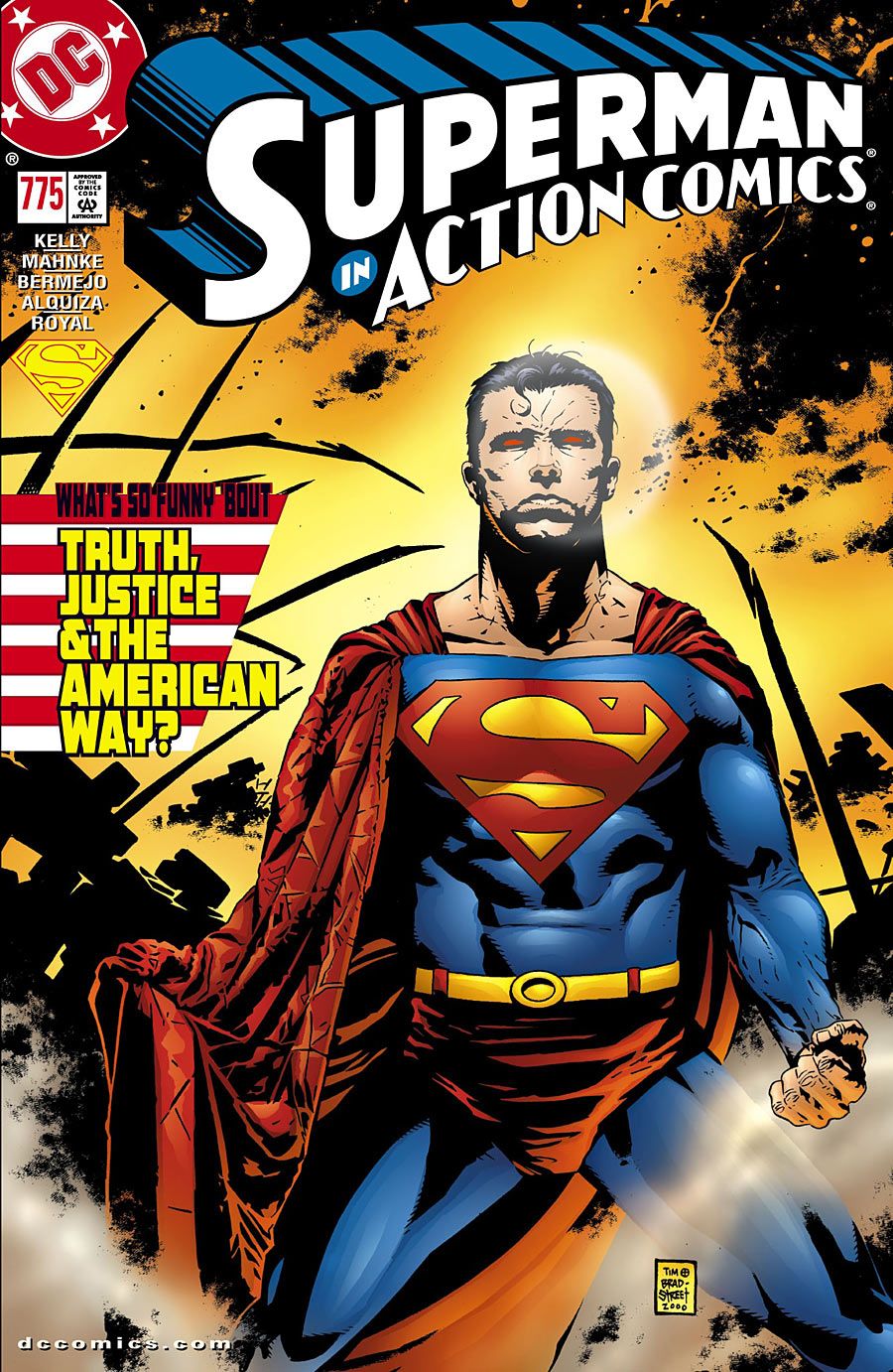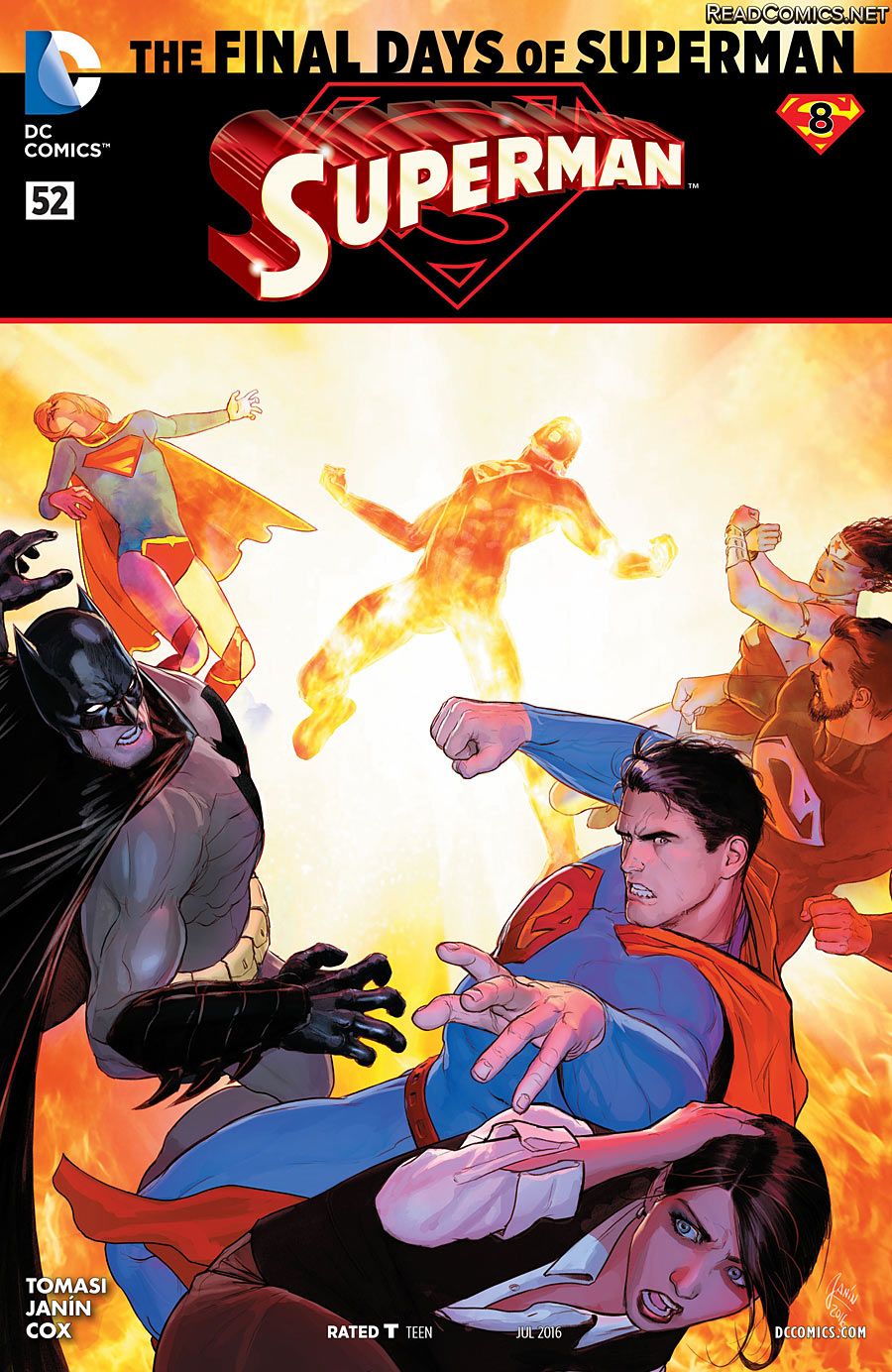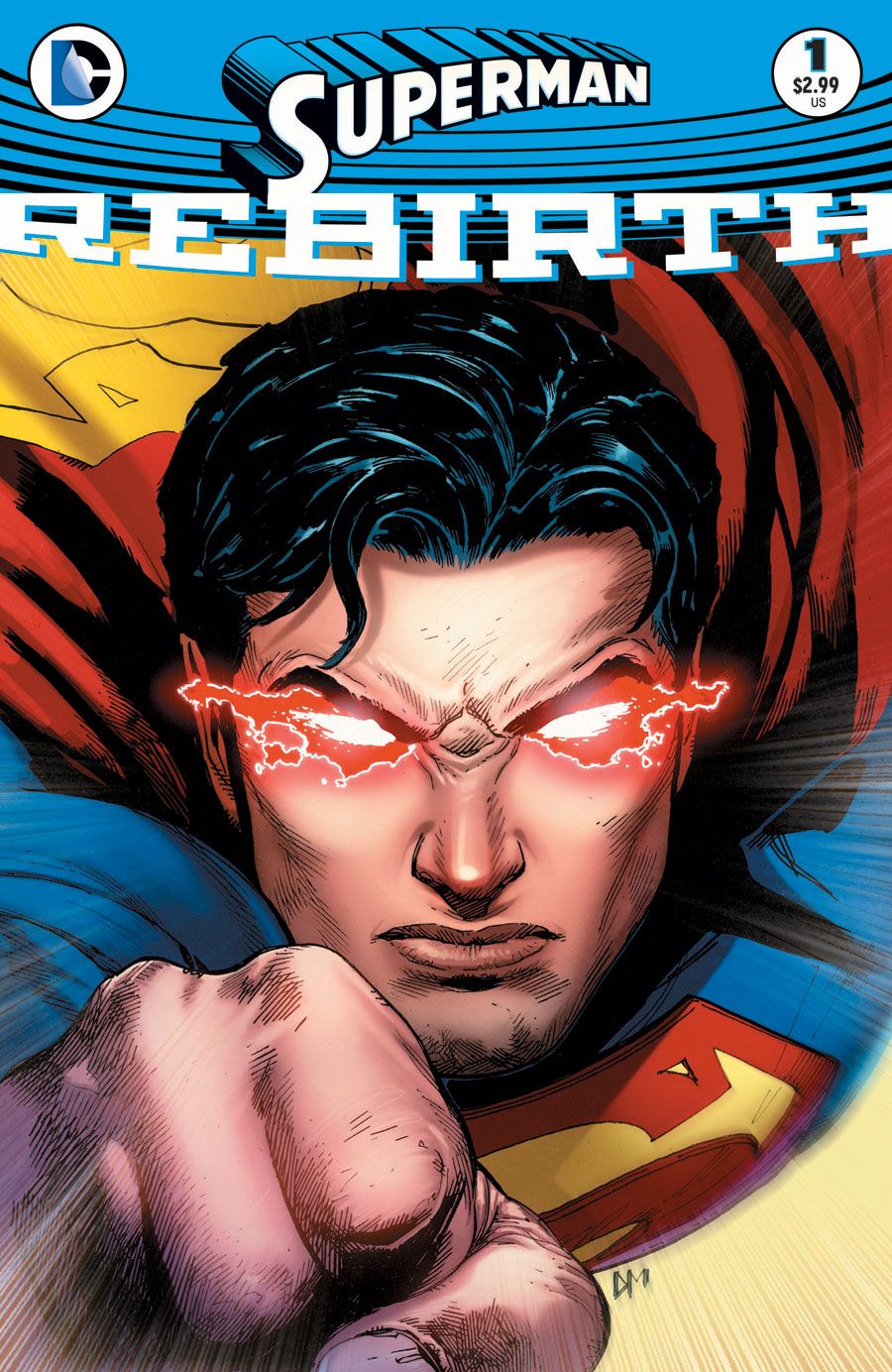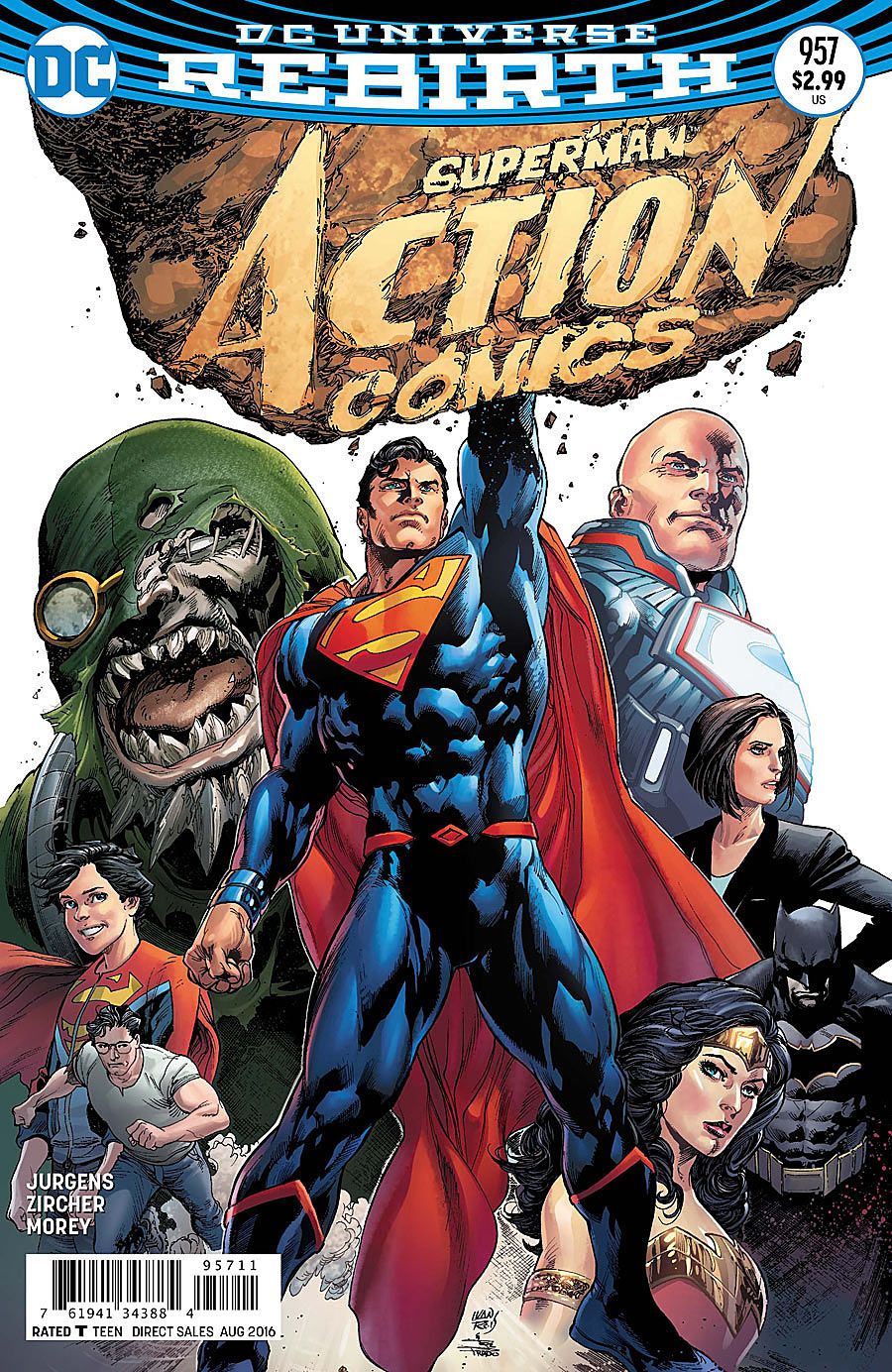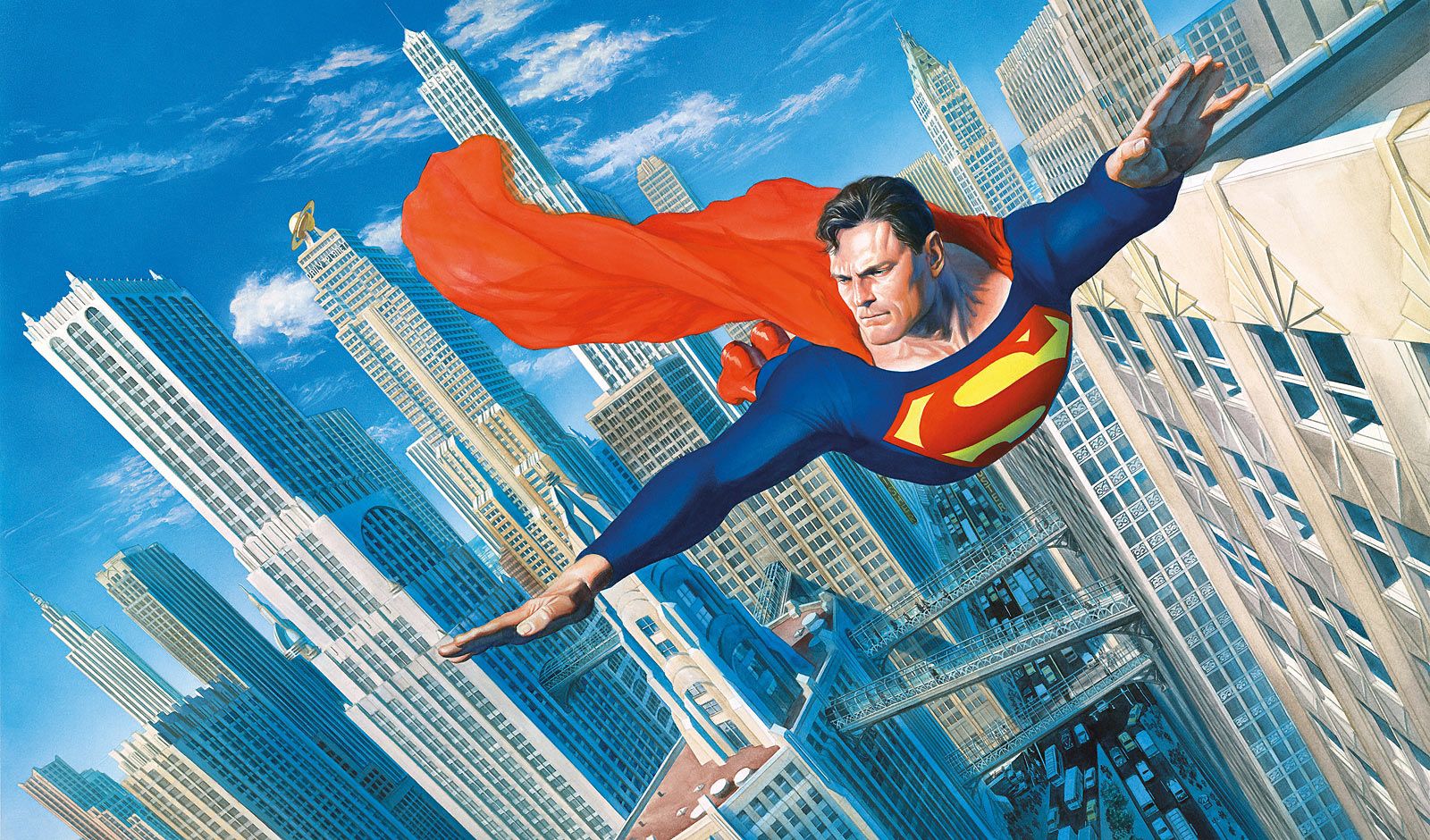"Laws won't stop them. It's what's in their mind. There is good and there is evil, and it seems like evil is winning."
After being impressed by the top-selling "DC Universe: Rebirth" comic book published by DC Comics and produced by a stellar team of creators, I decided to engage the fan in me. I committed to buying every first Rebirth title, and using the quality of each issue to decide if I would buy the series every month.
The DC Universe's revitalization is, in part, supported and informed by the death of their flagship character, Superman.
Starting in "Superman" #52, continuing in "Superman: Rebirth," and progressing in "Action Comics: Rebirth," the story of how Superman's valiant last fight against an enemy of equal power, and what happens to the world in the aftermath of the hero's tragic demise, is laid out brick by narrative brick.
EXCL. PREVIEW: DC's "Superman" #1 Ditches the Black Suit for "Rebirth"
Albeit still in its publication infancy, the new Superman story made me think about the first time Superman died, 24 years ago in "The Death of Superman" saga.
In a climactic showdown depicted in the 75th issue of "Superman," the hero fought to a bloody end against the villain called Doomsday, with both dying in the battle. Both were resurrected, after a good amount of time passed, so readers could become heavily invested in a world without its greatest hero. With the 21st Century revisiting of Superman's death as part of DC Comics' high-stakes gamble to revitalize their superhero universe, I wondered:
Did the publisher consider Superman's greatest impact and marketability to be in the form of a dead character?
In 2005, DC Comics began publishing "Infinite Crisis," a miniseries with Superman, Wonder Woman, and Batman at the thematic center of a large-scale story about the changing nature of heroes over time; their actions and their relevance.
During the first issue, Batman tells Superman the last time he inspired anyone is when he was dead. Possibly a metatextual statement from "Infinite Crisis" writer Geoff Johns, who is now the Chief Creative Officer of DC Entertainment, and the architect behind the rebirth of DC Comics' superhero universe and line of superhero comic books.
That assertion, voiced through a fictional character, apparently holds true to this day.
If a new reader wanted to enter the world of Superman now, they would learn, among other things:
- Superman is dead.
- Superman's greatest enemy is now acting as the new Superman for the deceased hero's city, Metropolis.
- A Superman from a parallel universe, who just happens to be the same Superman who was killed in the 1992 comic book, is living secretly in his counterpart's world.
- The parallel universe Superman has come out of hiding, seemingly poised to take on the mantle of Superman in this new world.
That's a lot to absorb, but if you decide to go with it and continue on, your introduction to Superman is an introduction to a corpse. In 1992, Superman's death led to the introduction of new heroes wearing the familiar "S" emblem. This year, the same thing is going to happen.
A pattern repeats itself, for whatever reason(s), and it begs the question: "Does Superman have the greatest impact when he is dead?"
I would say "No."
Superman is a character subject to a number of interpretations and approaches. Is he Jesus Christ? Is he a Sun God? Is he the ultimate immigrant?
I considered him the latter, until I had lunch with two friends recently. One of them a journalist, the other a well-known storyteller in comics, and the storyteller convinced me otherwise.
So after the better part of 46 years having an on-and-off relationship with Superman, I was wondering does he still work, and what exactly is he? Is Superman still relevant?
RELATED: Man of Steel Rebirth: Your Guide to the New (Old) Superman
From"Action Comics" #775 (published in 2001) to "Superman: Birthright" (2003-2004) to "All-Star Superman" (2005-2008), some of the most popular writers, artists, colorists and letterers in American superhero comic books have made best efforts to answer that question. All of them, and others, have done so in exemplary fashion. But I needed my own answer.
DC Comics has tried, with varying degrees of success and failure, to attach real-world social issues into Superman's mythos for years. National allegiance versus world allegiance, the growing conflict with American citizens and an increasingly militarized police force, the consequences of killing someone and more.
It never seems to stick. So where is Superman's gravitas? His impact? His power? I found my answer today.
I found it while thinking about the horrifying tragedy of June 12, in which a man used a weapon to murder at least 49 people in an Orlando nightclub, and injure more, using ideology as the justification for an inhumane act.
I found it while talking to my neighbor, an 80-year-old Jamaican woman who spoke the words at the beginning:
"Laws won't stop them. It's what's in their mind. There is good and there is evil, and it seems like evil is winning."
I found it while seeing the statements online from friends, family and strangers, in the declarations of people about their lives, their loves, their sexual identity and their convictions.
I found it while remembering an old interview with writer Warren Ellis, shortly after the terrible events of September 11, 2001, in which he discussed someone's public statement about wishing Superman was real. Ellis created a comic book about a team of real people with real skills who came together to save all of the other real people of the world.
Superman is not real. The ideal of Superman is, however, very real.
To do good.
In Superman is a place where prejudice finds no home, where murder finds no justification, where gender, lifestyle, ethnicity... none of these things matter.
These controversial differences, and the ugliness of the world that attaches to them, exploits them... they do not thematically stick to Superman because his mind and heart have no refuge for separation or segregation. There is only the impetus, to do good.
Beyond anger is the power to do good. Beyond sorrow is the power to do good. Beyond fear, rage, desperation. Beyond powerlessness... is power.
To do good.
The summary of efforts, the distillation of complex actions and activism. Our personal idiosyncrasies, internal conflicts, capacity for questioning what to do, how to do it, when to do it, for how long.
To do good, is the succinct idea, the apparent abstract, the decision that can lead to changing the courses of mighty rivers. Mighty rivers of hatred. Xenophobia. Fanaticism. The initiative to do good, which lies at the core of Superman, is his timeless root of relevancy.
That's the answer to my question about Superman.
Maybe that's a part of the answer to our questions in the face of horrifying acts, for which we eventually run out of words to describe. Because my neighbor is a fountain of wisdom, but I want her to be wrong this time.
Joseph Phillip Illidge is a public speaker on the subjects of race, comics and the corporate politics of diversity. In addition to his coverage by The New York Times, CNN Money, the BBC and Publishers Weekly, Joseph has been a speaker at John Jay College of Criminal Justice, Digital Book World's forum, Digitize Your Career: Marketing and Editing 2.0, Skidmore College, The School of Visual Arts, Purdue University, on the panel "Diversity in Comics: Race, Ethnicity, Gender and Sexual Orientation in American Comic Books" and at the Soho Gallery for Digital Art in New York City.
Joseph is the Head Writer for Verge Entertainment. Verge has developed an extensive library of intellectual properties for live-action and animated television and film, video games, graphic novels and web-based entertainment.
His graphic novel project, "The Ren," about the romance between a young musician from the South and a Harlem-born dancer in 1925, set against the backdrop of a crime war, will be published by First Second Books, a division of Macmillan.
Joseph's newest comic book project is the upcoming Scout Comics miniseries "Solarman," a revamp of a teenage superhero originally written by Stan Lee.

